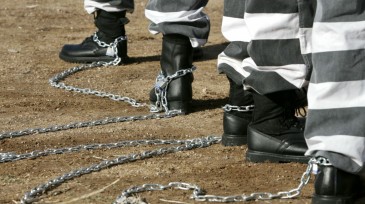
One of the fundamental principles underpinning our Constitutional republic is that the citizenry should not accept “trust me” as an answer from the federal government. Yet in one of our most Orwellian of federal departments – the Department of Homeland Security – a surveillance state is growing as our private information “trusted” to the government is used against us.
This surveillance state is made possible by Fusion Centers, police intelligence agencies that allow different police agencies to share intelligence with one another. It is, in effect, the intelligence-gathering method of the burgeoning police state. And the information gathered, received, analyzed and disseminated by local and state police agencies is then shared with the federal government.
Fusion Centers aren’t the only way police surveil citizens. Cell-site simulator devices – known as Stingrays – mimic wireless carrier cell towers to connect to nearby mobile phones and cell data devices. These controversial devices can extract data, intercept communications, conduct denial-of-serice attacks, find encryption keys, and more. It’s a serious threat to Americans’ privacy and civil liberties, first conceived during the War on Terror and now trickled down to local police departments and their militarized approach to enforcing the law.
Of course, while we’re assured that protections are being made for privacy and civil liberties, there is very little reason to trust the federal government – including the growing number of vague laws.
It’s easy to blame the War on Some Drugs as the reason for the explosion in the prison population, however this is simply not an adequate explanation. The real reason is a broad expansion in the total number of laws on the book and the vague manner in which they are written. What’s more, the concept of intent has largely disappeared from our national legal lexicon, meaning that simple mistakes are often enough to land a person in prison.
66-year-old George Norris provides a case study. He was greeted by three pickup trucks filled with six officers outfitted in flak jackets. He was held for four hours while the police searched his house, eventually seizing 37 boxes of his things with neither warrant nor explanation. He was indicted for orchid smuggling under the Convention on International Trade in Endangered Species and for (what else) making false statements to an officer for a simple paperwork error. While being held for trial, he shared a cell with an accused murderer. He was facing five years for the original charge and five years for conspiracy. Because he couldn’t afford his legal bills, he plead guilty and was sentenced to 17 months in prison.
Another broad example is civil-contempt imprisonment. This is where people are put in jail or prison for failure to, for example, respond to a bench warrant for an unpaid parking ticket. This is what Anthony W. Florence was arrested for while riding as a passenger in his family’s car with proof that he had paid the tickets. He spent seven days in jail where he was strip searched twice. Guards also watched him shower and subjected him to a delousing. People have also been imprisoned for failing to pay debts in accordance with court-ordered settlements, which carries the specter of the return of debtors’ prisons with it.
Minimum necessary force is a concept dating back to Plato, but has recently found expression in Dr. Jordan Peterson’s book 12 Rules for Life. Basically, the idea is that when someone wrongs another person, the correct course of action is always the one requiring the least force. This is why, for example, we can say that the Islamic practice of removing a thief’s hand is somehow objectively unethical – it is a punishment grossly out of proportion to the crime committed.
The secondary aspect to the principle of minimum necessary force is the notion that the best way to go about laws is to have as few as are necessary. While not strictly speaking “libertarian,” it’s sort of “libertarian adjacent.” Laws are, ultimately, a type of force. The more of them we have, the more force we have in society.
The present state of criminal justice in the United States violates both principles. Not only do we have far more laws than we need (criminal asset forfeiture, for example), but the punishments are frequently far out of sync with the crime committed. Is prison time really an appropriate response to someone smuggling orchids into the United States?
